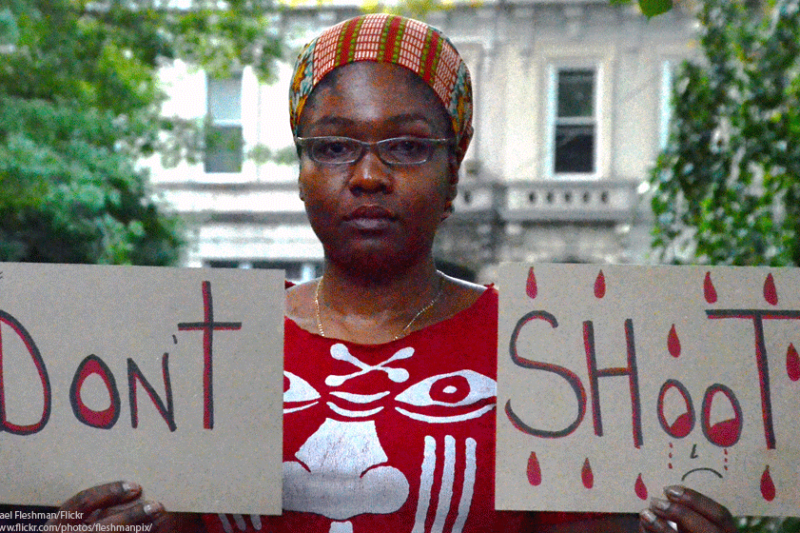After Ferguson, U.N. Calls on U.S. to Get Its Act Together on Race Discrimination


In the last several weeks, the state of Missouri has captured news headlines around the globe: first, with reports coming out of Ferguson of yet another unarmed African-American young man shot and killed by police, and then with accounts of a violent and militarized crackdown on protesters carried out by law enforcement in the aftermath.
Were they depicting a foreign crisis, these images would have been condemned by the and policymakers as evidence of human rights violations. But when they come out of our own backyard, we don’t call them human rights abuses. They are, at best, labeled police misconduct and civil rights concerns.
After all, America is a champion of human rights. So why is the world so outraged?
Because much of the world is tired of the U.S. double standard when it comes to human rights. It should come as no surprise that people associated images from Ferguson – full of teargas, rubber bullets, and militarized police deployed to suppress protests – with countries with poor human rights records, like , , , and . Global opinion is informed and influenced by the internet and social media, with domestic human rights abuses quickly and easily disseminated. Even when the violator is a superpower, we are reminded, in the words of Dr. Martin Luther King, Jr., that “injustice anywhere is a threat to justice everywhere.”
These sentiments were on full display earlier this month when the United States to defend its record on racial discrimination. Today, this body — — issued its verdict: a 14-page-long scathing on the U.S. failure to fully comply with its obligations under the International Convention on the Elimination of All Forms of Racial Discrimination (ICERD) in numerous areas affecting racial and ethnic minorities. While it commended the Obama administration for steps it has taken to combat racial discrimination, it highlighted the gaps between the administration’s stated commitments and the glaring reality of laws and practices that continue to discriminate against and disproportionately impact people of color and indigenous communities.
The committee’s findings are based on hundreds of pages of submitted by the as well as , which are then produced after a attended by a . The U.S. review coincided with the protests in Ferguson after the killing of unarmed black teenager Michael Brown, a development that did not go overlooked during the hearing. Members of the committee were also moved by testimonies from the parents of Trayvon Martin and Jordan Davis, who attended the review to share their loss and lessons to be learned from their own tragedies.
The recommendations released today address structural and pervasive forms of discrimination in the United States, which often go overlooked in public debates sparked by the loss of human life due to the unjustified use of force. They offer a blueprint to end racial discrimination and to promote equal opportunity. They include calls to:
- End racial profiling by adopting the End Racial Profiling Act and swiftly revising the 2003 Justice Department Guidance on the Use of Race by Federal Law Enforcement Agencies.
- Stop the militarized approach to policing, which has had a disproportionate impact on communities of color and to immigration law enforcement, which has led to killings at the border, mandatory detention of immigrants, and deportation without adequate access to justice.
- Develop a comprehensive plan to reduce school segregation and address the school-to-prison pipeline.
- End racial disparities in the criminal justice system at the federal, state, and local levels.
These recommended reforms aren’t just about changing policy. They’re about addressing the root causes of discrimination. The Race Convention, the report reminds us, “requires States parties to prohibit and eliminate racial discrimination in all its forms,” including legislation and practices that have disparate impact on racial and ethnic minorities.
The United States ratified the convention 20 years ago. It’s time to do it .
Learn more about racial discrimination and other civil liberties issues: Sign up for breaking news alerts, , and .

